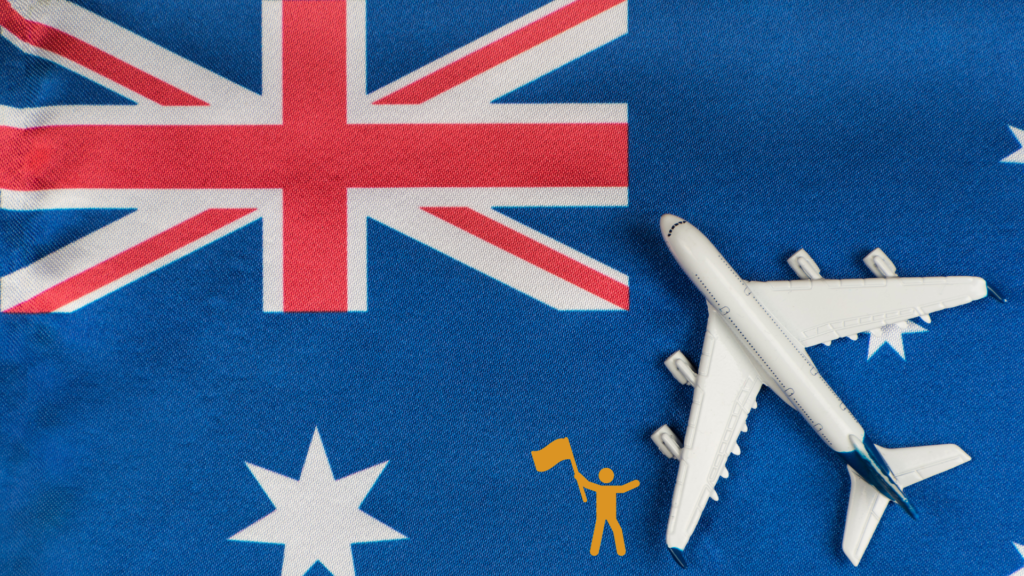CITIZENSHIP APPLICATION
WE GET IT
Our expertise and advice will simplifies the family sponsored visa applicaiton process
Award-Winning Law Firm
We have won several client service excellence and leading law firm awards every year up to and including 2024.
Proven Track Record
20+ Years of Combined Experience in Family Sponsored visa applications and appeals means a successful outcome is on the table.
5 Star Reviews Everywhere
We’re in it to win it and we fight hard for our clients. That’s why anywhere you look you will find only 5 star reviews.
Book Your Consultation
If your case is important to you it’s important to us. Call Jameson Law and join the winning side today.
Are you in need of a Family Visa? Do you need assistance working out if you fit the criteria and eligibility requirements? The Australian Immigration Department has developed the Family Sponsored Visa in an effort to reunify families who have been separated by way of immigration. A partner, spouse, child or parent now has the opportunity to migrate to Australia provided that they satisfy the pre-condition requirements.

What Are The Different Types Of Family Visa’s I Could Obtain?
If you are looking at obtaining a family visa, there are a few different options for you to choose from. The following is a list of the most common types of family visa’s which you can apply for;
- Skilled Work Regional (Provisional) (subclass 491) visa via the Family Sponsored Stream
- Child (Permanent) (subclass 101) visa
- Parent (Permanent) (subclass 103) visa
- Contributory Parent (Temporary) (subclass 173) visa
- Contributory Parent (Permanent) (subclass 143) visa
- Aged Parent (Permanent) (subclass 804) visa
- Contributory Aged Parent (Temporary) (subclass 884) visa
- Contributory Aged Parent (Permanent) (subclass 864) visa
- Partner (Temporary and Permanent) (subclass 820/801) visa
- Partner (Provisional and Permanent) (subclass 309/100) visa
- Prospective Marriage (subclass 300) visa
Family Visa’s allow relatives to legally live or visit their family in Australia provided they comply with the obligations imposed by their visa. The visa application process can be difficult and is not something that should be attempted without proper understanding of both the obligations and consequences which can arise if the application is granted.
Below is a brief breakdown of the eligibility criteria required for a few of the above visa’s;
Subclass 115 Visa (Remaining Relative Visa)
The remaining relative visa allows people to move permanently to Australia because their last remaining relatives either reside in Australia or have become Australian citizens. The purpose of this visa is to reunite families who have been separated and allow families to reside in Australia together legally. Another term you may have heard this process be referred to is that of "family migration". Unfortunately, waiting lists for this type of visa are long and there are only so many granted each financial year. The delay in time from an application being made to an application being either granted or rejected can take several years.
Subclass 101 Visa (Child Visa)
A subclass 101 visa allows children to move to Australia to live with their parents who are already living/residing in Australia. Under this type of visa, children can become permanent Australian citizens and can access assistance which most visa holders cannot including Medicare and study assistance. The exceptional thing about this type of visa is that the "child" can include their own children in the application as well and can thus migrate their family to Australia as well as themselves.
Criteria Required
Subclass 101 visa's can be granted to children whose parents are either Australian citizens, holder's of an Australian permanent visa or who are fortunate enough to be eligible New Zealand citizens. The child itself must be either under 18 years old, a full-time student who is over the age of 18 but under the age of 25 and still financially dependent or a child who is over the age of 18 but suffering from a disability or impairment.
Contributory Parent Visa
There are two different types of contributory parents visa's; the subclass 173 visa and the subclass 143 visa.
The subclass 173 visa allows an eligible parent to live, work and reside in Australia for a period of up to two years This is what is known as a temporary visa for family members. In order to be eligible for this visa you need to be sponsored by an eligible child who is a settled Australian citizen, Australian Permanent resident or Eligible New Zealand citizen. You need to be sure that you have not already applied for or been granted a different type of parent visa and ensure that you follow all visa conditions and Australian law.
The subclass 143 visa however, is classed as the permanent version of the parent visa. The main difference between the two visa's is that an additional eligibility criteria requires that the applicant have assurance of support in place to assist them.The visa also allows the applicant to remain in Australia as a permanent resident instead of being bound by a two year limit.
Case Scenario
Anna wants to apply for an Australian visa so that she can join her mother in Australia. Anna had been living with her father in Africa but he has since passed and she has no other family. Anna is not currently studying or working because she has been looking after her father who had terminal cancer. Anna originally wanted to apply for a subclass 101 visa but she does not fit the eligibility requirements because she is over the age of 18 and is not a full time student. Anna was unaware however, that she could be eligible for this type of visa given her disability. Anna suffers from a rare form of benign tumor which presses on the optical nerve in her head. The tumor is inoperable because of its location but is slowly causing Anna to go blind. It is projected that in 3-4 years, Anna will be completely blind. Anna was able to apply for the subclass 101 visa and have it granted due to her disability.
Prospective Marriage Visa (Subclass 300)
A prospective marriage visa allows you to travel to Australia to marry your defacto partner or prospective spouse so long as you intend to marry your partner before the visa period is due to end. In order to be eligible for this type of visa, you must be over 18 years of age and therefore legally of an age where you can be married in Australia and you must have sponsorship from your prospective spouse. You must also reside outside Australia when you apply for this visa. It is not a requirement that you provide proof of a joint relationship but rather that you provide proof of your intention to marry.
Partner Visa (Subclass 820/801)
A partner visa can either be temporary or permanent depending on which subclass you are applying for. The Subclass 820 visa is the temporary version and is usually granted to people who are waiting for a subclass 801 visa (permanent visa) so that they can travel to Australia and be with their defacto spouse. A key requirement of both these visa's is that you must reside within Australia to be able to apply for one and you must hold a temporary subclass 820 visa to be eligible to apply for a permanent subclass 801 visa.
Carer Visa (Subclass 836)
In order to be granted a carer visa you must be a carer for a family member, spouse or relative who cannot reasonably access additional forms of care within Australia. It is a requirement that you reside within Australia when you apply for this type of visa and that you be sponsored by your relative, spouse or defacto partner for the first two years of your visa period. This type of visa allows permanent residence within Australia and allows you to both work and study during its duration.
Case Scenario
Susan resides in Melbourne on a student visa while she studies at Monash University. Susan's aunt lives in Sydney and has been diagnosed with cancer. She requires full time care as her condition worsens but is unable to access carer assistance because she is not an Australian citizen but rather only has permanent residency under her subclass 115 (remaining relative) visa. Susan is the only family member who can take care of her. Susan wants to apply for a carer visa so that she can move to Sydney and take care of her aunt. Susan cannot do so under her current visa because she is required to remain enrolled in her course and she could not study and also take care of her aunt. Susan has applied for Australian citizenship but there is a long processing time for her application and it is unlikely to be granted in time. Susan's aunt will be sponsoring her for the next two years while she acts as her carer. Susan fits all the criteria for the carers visa.
Are Processing Times For Visa’s Long?
On average, yes, processing time for visa’s are long and can take several years to be approved. Every year, hundreds of thousands of people apply for visas to travel or immigrate to Australia. It is much simpler to obtain a temporary or travel visa than it is to obtain a visa to be able to immigrate/move to Australia. There are also different criteria required for each visa and the criteria required for a shorter term visa is less stringent than the criteria required for a permanent or longer term visa. The Department of Home Affairs website is the best means of monitoring processing times and periods of delay with visa applications. They will also provide you accurate and up-to-date information regarding how the coronavirus pandemic has affected the Australian Government’s ability to accept immigrants and migrants.
Case Study
1. Subclass 101 Visa (Alex)
2. Subclass 115 Visa (Alex's grandmother)

Who Can I Get To Assist me With The Visa Application Process?
If you are thinking about applying for a visa then your best option is to speak to an immigration or migration lawyer who specializes in the field. Our team of expert trained lawyers would be happy to assist you with any questions, concerns or processes and will happily help you fill out your application. Our team of lawyers are able to explain all the obligations and responsibilities you would be signing up for and will discuss all aspects of your matter with you at length.
Other available options which would assist alongside our expert advice include considering the Department of Home Affairs website along with any reputable Australian Government website relating to visa applications.
Alternatively, you can contact a registered migration agent for advice on which visa may be best suited to you or for information regarding applications, current processing times, and character requirements.
What Proof May I Require For My Eligibility Requirements?
There may be some occasions where you need to prove your familial or marital status in order to be eligible for a visa. You should always have copies of your birth certificate and marriage certificate (if applicable) so that you do not have to delay your application while you obtain these documents. These documents can be uploaded to your immiaccount for easier usage.
Does The Classification “Members Of Your Family” Include Step-children?
Under child visa’s, step children and adopted children are included if they are classed as one of your dependant’s. Therefore they are included as a member of your family. A birth certificate may be necessary when dealing with adopted children including a confirmation of the legal adoption. Step children are always tricky as there is normally no paperwork which confirms them to be members of your family however rest assured they are classed as members of your family is they are financially or otherwise dependant on you.

Visa application process
- Find the appropriate visa category to apply for
- Ensure that you are eligible to apply for the visa selected
- Ensure you provide copies of any necessary supporting documents e.g. birth certificate, passport, marriage certificate, etc.
- Complete and lodge your application form
- Lodgement of a visa application requires payment of a fee
- Wait for the decision
- Receive the decision
- Lodge an appeal if necessary
Speak to a lawyer today
No matter what type of visa you are trying to obtain, be it a child visa, family visa, partner visa, bridging visa, etc, there are experts available to assist you every step of the way. Our helpful team of lawyers will ensure that your application is as detailed as possible so that you have the best chance at success. Whether you are onshore or offshore, our team is able to provide you will accurate, up to date information to assist in every scenario and will gladly assist you with any migration or immigration needs. Contact us today to get the process started.
Disclaimer
The above is general legal information and should not be considered legal advice. You should speak with one of our migration lawyers for legal advice tailored to your specific legal matter. The courts and tribunals deal with matters on a case by case basis. It should also be noted that there may be delays due to COVID-19.
We're here to help
Book your Family Sponsored Visa consultation today
Verified Reviews
Frequently Asked Questions.
The Minister for Home Affairs can revoke your citizenship attained through application or conferral for the following reasons:
Being convicted of having made a false statement or concealed a material circumstance in connection with the citizenship application;
Citizenship was granted as a result of migration-related fraud;
Citizenship was approved as a result of migration-related fraud by a third party;
Being convicted of an offence and sentenced to 12 months imprisonment (where the offence took place before citizenship was granted);
If parents lose their citizenship (except by death), their children under the age of 18 will may also lose their citizenship;
If you are over the age of 14 and you have dual citizenship, you renounce your citizenship by acting inconsistently with your allegiance to Australia by engaging in activities associated with terrorist offences;
By serving in the armed forces of another country who is at war with Australia.
If your citizenship has been revoked, you may be able to appeal the revocation in the Administrative Appeals Tribunal. For further information, contact our Immigration Law team for a free initial consultation.
If you are an Australian permanent resident, you do not have an automatic right to re-enter Australia if you leave. Depending on the terms of your permanent residence, you may be required to apply for a Resident Return Visa. It permits you to travel in and out of Australia as many times as you like before its expiry. It is valid for five years.
Becoming an Australian citizen entitles you to many opportunities that are not available to Visa holders and permanent residents. These include:
Voting in federal, state/territory elections and referendums
Apply for children born overseas to become Australian citizens
Apply for a job in the Australian public service and Defence Force
Seek election to Parliament
Apply for an Australian passport and freely re-enter Australia
Ask for Australian consular assistance while overseas

 (02) 8806 0866
(02) 8806 0866 
